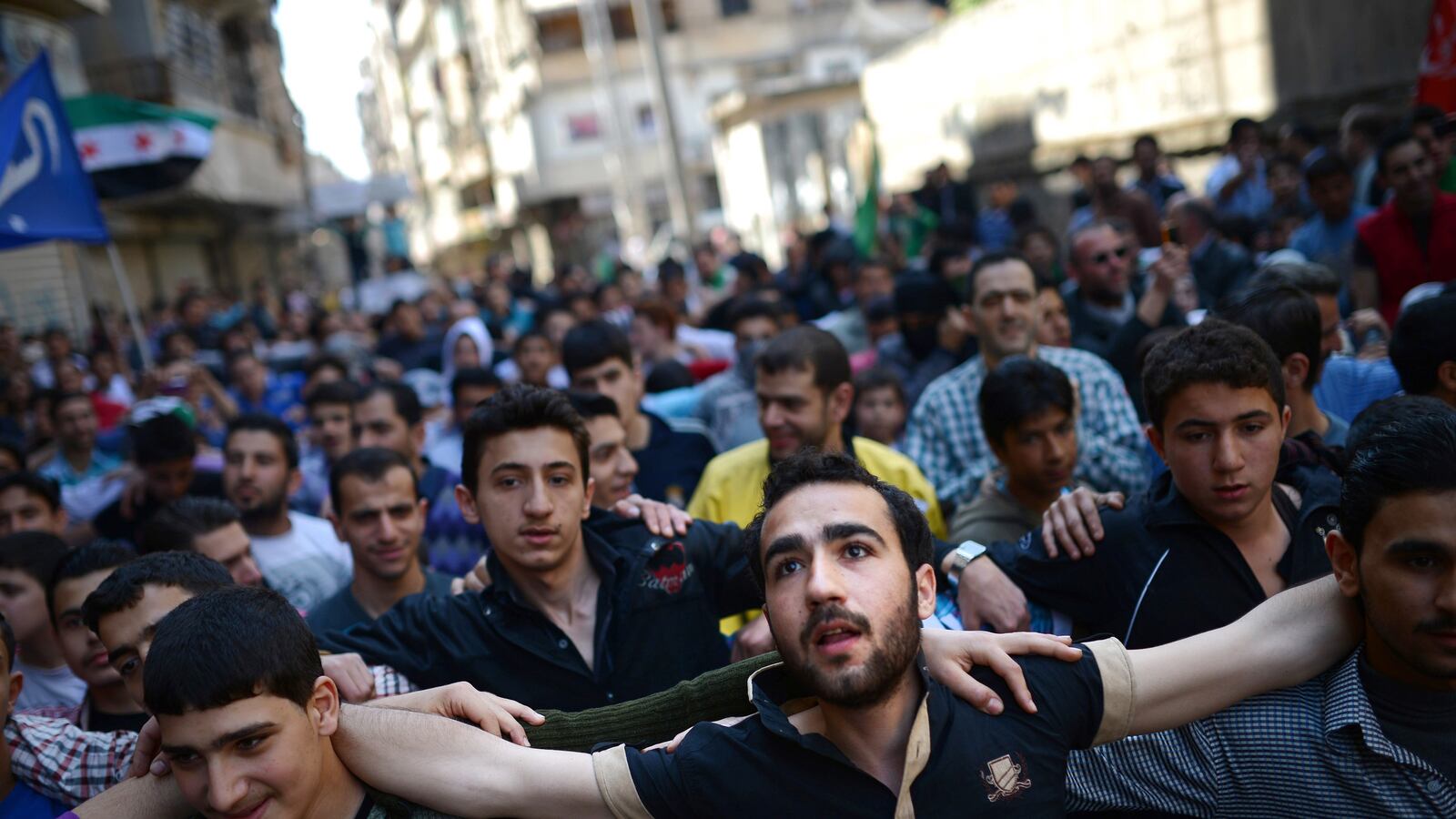With the international community pondering a retaliatory strike against Syria as retribution for its reported use of chemical weapons, the opposition is smitten with joy. For more than two years, it has unsuccessfully tried to drag the world powers from their spectators’ seats into the arena. But though America and its allies appear ready to strike, the Syrian opposition will not benefit. For in the cauldron of chaos that Syria has become, it is the jihadists who control the strongest brigades.

Militants from the Qaeda affiliate the Islamic State in Iraq and Syria (ISIS) kidnap Westerners and fighters from other brigades with impunity. They kill leaders from the rebel-led Free Syrian Army (FSA) without the slightest fear of retribution. ISIS controls key roads, dams, and grain silos, with checkpoints everywhere. In the northern provinces of Aleppo, Idlib, and al-Raqqa, the organization is either the most or second-most powerful brigade. ISIS is an A-Team force among FSA units composed of squabbling Gomer Pyles.
ISIS’s success in Syria is nothing new. In every conflict in which jihadists participate, they quickly become the most dominant fighting force. Several factors account for their supremacy in Syria. Experience from other conflicts—including Chechnya, Iraq, and Mali—provides them with an institutional knowledge of fighting that local combatants often lack. They are frequently the most courageous warriors on the battlefield. Their martial spirit attracts the admiration of locals who seek to join their elite band of brothers. Today, American intelligence agencies believe more than 6,000 foreigners are fighting in Syria.
Unlike indigenous rebels, whose dedication to the cause is as fickle as a teenager’s first crush, jihadists fight for ideological reasons. They believe they are performing a sacred deed by engaging in a jihad, or holy war. The concept is much maligned and misunderstood in the West as a fanatical religious war. A much more nuanced characterization is provided by the Prophet Muhammad’s statement that one should fight “in order that the word of Allah reigns supreme.” Such an exertion can range from bringing Muslims closer to the faith to fostering social cohesion.

In Syria, ISIS is active on all these fronts. It runs a 15-day Introduction to Islam course in northern Syria, according to people who say they’ve attended the workshop. There, a Syrian population largely denied religious instruction by the ruling secular Baath Party learns the basic tenets of their faith. ISIS sponsors summer camps for youth. Such programs show Syrians the group’s gentler side that is often lost in the Western media’s focus on its more belligerent activities.
ISIS provides social services such as conflict mediation as well. Because foreign fighters have no link to Syria, they can play the role of neutral outsiders. With the war having destroyed the judicial system, Syrians seek out members of ISIS to adjudicate disputes. In one case, the jihadists jailed a mechanic for a substandard repair job, according to a prisoner who shared a cell with him.
Jihadists in other countries have done the same. In Yemen, al Qaeda in the Arabian Peninsula has filled the void created by a decrepit justice system. This is not a new phenomenon in Islamic lands. Historically, the descendants of the Prophet Muhammad played this role. By solving everyday dilemmas, ISIS is winning over Syrians’ hearts and minds.
Syrians are equally impressed by the group’s squeaky-clean image. In contrast to other brigades, whose motto is “fight by day, plunder by night,” ISIS is a dedicated combat force. FSA forces steal everything from grain to air conditioners. Aleppo units, such as Ahrar Suriyya, Asifa al-Shamal, and Ghuraba al-Sham, have drawn the ire of a population increasingly viewing the revolution as mere cover for replacing a repressive regime with fiefdoms controlled by warlord bandits.
Though some FSA brigades must dabble in criminal activities to stay afloat and pay their fighters, ISIS is not strapped for cash. A steady stream of financiers from wealthy Persian Gulf nations arrives at Turkish border towns such as Reyhanli. They spend a week in Syria visiting ISIS units, returning to their native countries to submit their assessments and reappearing with suitcases full of cash. Such a well-greased machine ensures that ISIS can focus all its efforts on fighting the Syrian regime rather than beseeching patron nations for funding.
As Washington contemplates striking Syria, it should not be fooled into believing that an air offensive will tip the battle in the FSA’s favor. Instead, the bombs America will drop will be manna for ISIS. For Syria is slowly becoming the jihadist haven al Qaeda has historically sought in the heart of the Arab world. And nothing short of a sustained campaign that Washington has no stomach for can prevent this prophecy from materializing.






